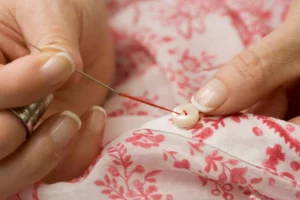I have really strong “ought” muscles. Just like having huge biceps, living with these ought muscles is both a blessing and a curse. And I would know, because I also have huge biceps. Or, at least I ought to.
Let me explain: My eyes and my heart are often strongly drawn toward injustice. When I see something wrong in the world, I have a tendency to get rather agitated because I see how it ought to be.
When I see children around the world without clean water, something deep within me twists, because that is not how it ought to be. When women are treated poorly and not given equal opportunity as men, my ought muscles twitch. When political corruption takes over yet another headline, my inner Popeye rolls up his sleeves, hops on a table and bellows, “That’s all I can stands and I can’t stands no more!”
The tension is here.
I would argue those are all (mostly) appropriate responses, but sadly my ought muscles also have a dark side. If I’ve been sitting at a restaurant for 15 minutes and no one has taken my drink order yet, a strangely familiar feeling prepares to burst on the scene. If a meeting at work seems to drag on much longer than it needs to, my ought-Hulk has noticeable shades of green. And I’ve been working out at the gym for a few days in a row now, so clearly I should have huge biceps by now! This is not how this ought to be!
One of my favorite bands has always been Switchfoot. In their popular song “I Dare You To Move,” one particular line has always haunted me:
The tension is here
Between who you are and who you could be
Between how it is and how it should be.
I feel those words. I live in that tension. In important and silly and embarrassing instances, my ought muscles struggle with the messy middle we all live in.
She did what she could.
One day as Jesus was nearing the end of His time on earth, He was hanging out with friends at Simon’s house. While there, a woman came to Jesus with a jar of very expensive perfume. As a beautiful act of worship, she broke the jar and gently poured the ointment on Jesus’ head. Jesus was moved by this thoughtful act, but those around Him were not:
“Why was the ointment wasted like that? For this ointment could have been sold for more than three hundred denarii and given to the poor.” And they scolded her. (Mark 14:4-5)
You hear it, right? Lots of ought muscles are flexing here. Why waste such an expensive gift? That ought to be sold and given to the poor! Notice, these scoffers didn’t offer to sell their own stuff to help the poor; instead, they scolded this worshipful woman for sacrificing for Jesus.
In contrast to the scoffers, see how Jesus responded:
“Leave her alone. Why do you trouble her? She has done a beautiful thing to me. For you always have the poor with you, and whenever you want, you can do good for them. But you will not always have me. She has done what she could; she has anointed my body beforehand for burial.” (vv. 6-8)
She has done what she could.
Did this woman solve all the world’s problems? Did she do some sort of terrific, public act that would help millions of people? Did she start Kickstarter campaigns and Go Fund Me pages for tragic injustices? Did she find amazing life hacks that led to increased productivity and higher profit margins?
No. What did she do? She did what she could. She couldn’t do all of those things, but she could offer the best of what she had to her Savior. Interestingly, Jesus continued:
“And truly, I say to you, wherever the gospel is proclaimed in the whole world, what she has done will be told in memory of her.” (v. 9)
This story is told in all four Gospels, and none of the Gospel writers recorded a single word the woman said during this exchange. There is even some debate among scholars about who this woman actually was. But still, Jesus’ words are true: Almost 2,000 years later, we’re still talking about this woman. She has gone down in history as a noble figure who did what she could to serve the Messiah.
Embrace the tension.
Having ought muscles isn’t a bad thing. Actually, it’s a really good thing if you use them well. We should be upset my injustice, and we should work towards making our world a better place. However, we also need to keep these muscles in check.
Because of my ought muscles, sometimes I carry burdens I was never meant to carry. If the “oughtness” of a situation is strong enough, I feel personally responsible to right huge wrongs that I realistically can’t change. On the flip side, sometimes I simply need to relax and let the “oughtness” go — because the hundreds of minor injustices we all face each day aren’t worth Popeye-level responses every time.
We live in a messy and broken world where all sorts of things ought to be different. The tension is here, between how it is and how it should be. Some of you probably resonate with me stronger than others. The tension is hard and frustrating and unfair and exhausting to some of us, but here’s my word of encouragement for you:
Do what you can.
Just like the woman’s touching act of worship to Jesus, do something. Do the right thing. Don’t be hard on yourself if you can’t solve all the world’s problems. Let the little stuff go, and do what you can to chip away at injustice over time.
It’s easier said than done, but that is what we ought to do.












